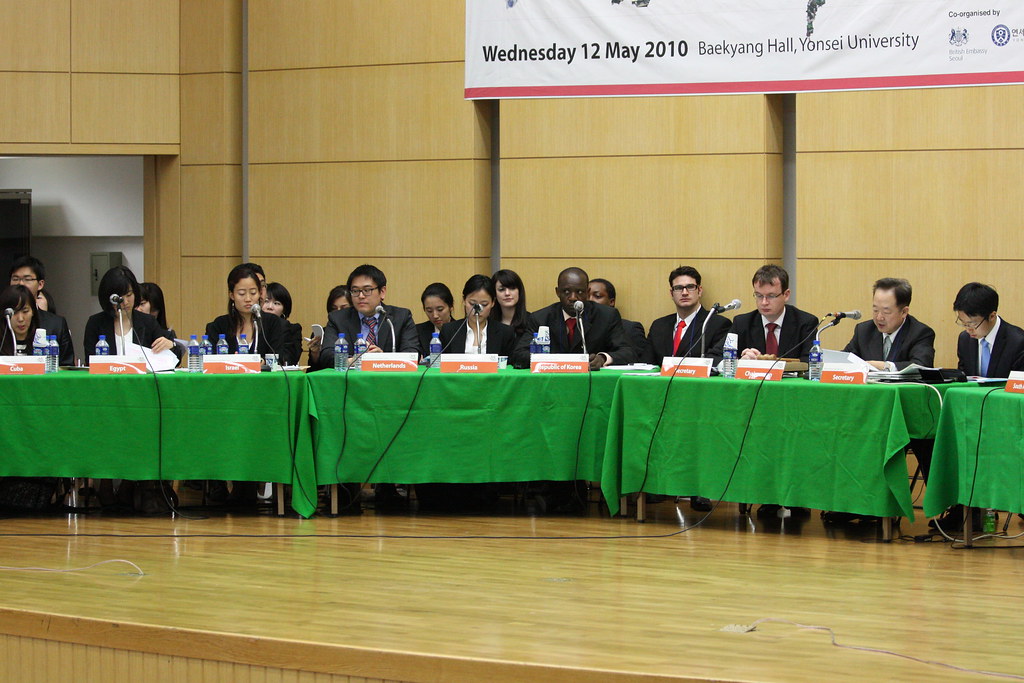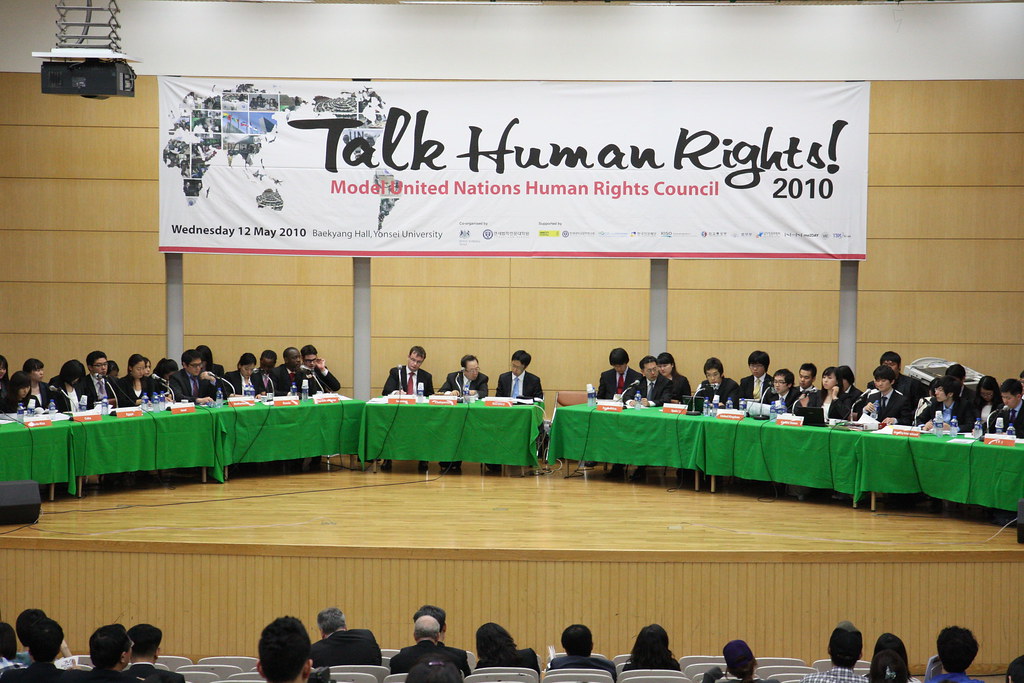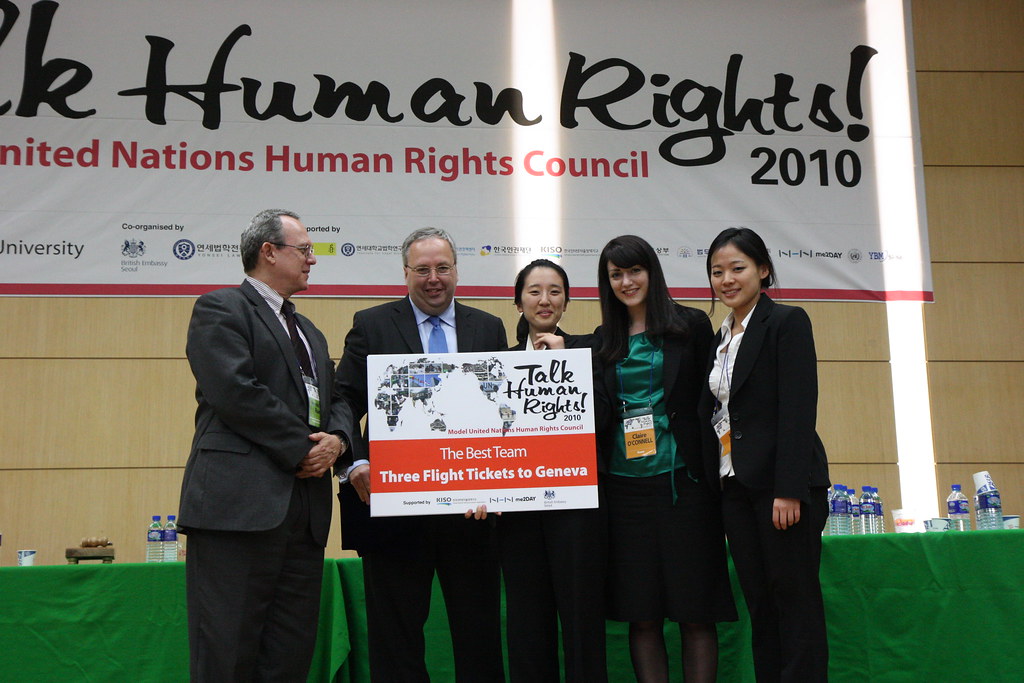Allegation letter to
- The Special Rapporteur on the rights to freedom of peaceful assembly and of association
- The Special Rapporteur on the promotion and protection of the right to freedom of opinion and expression
진정사한 제출:
- 평화로운 집회 및 결사의 자유에 대한 권리 특별보고관
- 의사 및 표현의 자유에 대한 권리의 증진 및 보호 특별보고관
l Case: Republic of Korea – Dissolution of the Unified Progressive Party
l Date: 30 December 2014
l Submitting Organization: MINBYUN-Lawyers for a Democratic Society
l 사건명: 대한민국 - 통합진보당 해산
l 일자: 2014. 12. 30.
l 제출기관: 민변 - 민주사회를 위한 변호사모임
1. Case Summary
On November 5, 2013, the government of the Republic of Korea, the claimant of this case, requested a trial to the Constitutional Court of Korea to adjudicate dissolution of the Unified Progressive Party (UPP), on the ground that the objectives and activities of the UPP, the respondent, violate the basic orders of democracy. The Constitutional Court reviewed the case for a year through two rounds of argument preparation date and 18 rounds of date for pleading. In the process, the claimant and the respondent continued with their battle by submitting over 175,000 pages of documents and evidential materials. On December 19, 2014, the court ruled the dissolution of the UPP for i) the objectives and activities of the respondent are against the basic orders of democracy and there is no alternative measure to resolve such unconstitutional problems of the respondent. In addition, there exist social needs for the dissolution of the UPP, since the social benefits that will be induced by the decision on the dissolution of the UPP are much greater than the disadvantages that are to ensue from it. The Constitutional Court also ii) stripped every lawmaker belonging to the UPP of their positions in the National Assembly.
2. Problems and human rights violations cause by the Decision of the Constitutional Court
1) While the Constitutional Court of Korea acknowledges the guidelines of the Venice Commission on the basic principles and adjudication standards of the dissolution of unconstitutional political parties in principle, it did not apply them in their decision on this case, highlighting the unique circumstances of a divided nation. As a result, the Korean Constitutional Court excluded the general principle theories and distorted and arbitrarily modified the standards of the dissolution of political parties.
2) The decision of the Constitutional Court is based on the logic that the objectives of a political party have to be apprehended through “hidden objectives”, i.e. data other than a party platform, in order to reveal the real objectives. In other words, each and every activity of the members of the UPP has to be fragmented into pieces so as to finish a larger picture, the “hidden objectives”, by collecting those pieces that are suspected to be unconstitutional. However, such puzzle play for finding “hidden objectives” is to enable the government to wield power arbitrarily through analogical interpretation, which reminds of the state violence exercised under the Nazi’s criminal code.
3) When it comes to activities of a political party, the Constitutional Court regards the following as political party activities: all activities of any lawmaker of a party on top of the party leader, or representatives of the party congress, central committee, or the supreme council, which is an enforcement agency, that are carried out in the position as an influential politician within the party and closely related to the party; and the activities of individuals or groups belonging to a party that are defended or supported by the party. However, such judgment is much too comprehensive and against the principle of clarity in that individual and private activities outside the boundaries of a political party could come under the domain of political party activities.
4) The Constitutional Court states that there exists the so-called “leading force” that works toward achieving North Korea-style socialism within the party, whose arguments, notion, strategic method, and goal for a revolution are “in general identical or very similar” to those of North Korean socialistic ideology, and concludes that “such homogeneity or similarity goes beyond the range of a piecemeal or fragmentary category.” Nevertheless, the Constitutional Court is not yet able to provide a concrete proof regarding its premise about the “leading force”. Furthermore, the Constitutional Court is choosing an illogical proving method that simply compares the North’s argument with the wording of the argument of the “leading force” to judge their homogeneity or similarity, which only indirectly proves the fact that no circumstantial evidence was found during the trial process of over one year that proves the respondent is following North Korea.
5) Even when accepting the Constitutional Court’s view regarding the existence and tendency of the so-called “leading force”, it is a separate issue whether or not the political party is giving rise to the “concrete danger that will actually cast any evil influence”. Nevertheless, the Constitutional Court is establishing shallow criteria for definite danger by obscurely concluding that “the unconstitutional objectives of a political party serve as more than enough grounds for acknowledging a substantial danger, as long as political parties institutionally exist”.
6) Regarding the conditions for the dissolution of a political party, the Constitutional Court had the principle of proportionality as a standard of the adjudication on constitutionality. However, the adjudication has not served any role, as it is much too formal and moderated. The Court only provides vague standards by stipulating the circumstances “when there is no alternative method and the social benefits derived from the restriction of a political party’s freedom of political party activities exceed the disadvantages derived from imposing a critical constraint on a democratic society”. Moreover, there is no consideration provided at all regarding the intensity of the adjudication.
The Constitutional Court also excluded the condition of urgency to all intents and purposes by stating that “if the objectives and activities of a party bear critical unconstitutionality, the need for the dissolution of the party is acknowledged in the light of the preventive characteristics of the dissolution of a political party system”. Not only is such argument wholly against the complementary and supplementary natures of the principle of proportionality, it also disregards the intent of the Venice Commission, which stipulates that the dissolution of a political party policy is a kind of “passive safety valve”.
7) Meanwhile, regarding the claimant’s request for the forfeiture of the UPP’s parliamentary seats, the Constitutional Court accepted the claimant’s request arguing that the forfeiture of the seats is an essential effect of the dissolution of a political party system, while admitting the fact that there is no provision in the constitution and legislations as regard to the request. Such judgment falls outside the umbrella of the constitution and laws and is against the principle of proportionality in that every lawmaker of the UPP was uniformly forfeited of their seats. Furthermore, it is against the principle of separation of powers that the Constitutional Court ordered the forfeiture of the UPP’s seats without any legal ground, despite the fact that the Constitution of the Republic of Korea specifies the autonomous qualification screening and the punishment system for the National Assembly to conduct on lawmakers.
3. Expected Problems
1) When the Communist Party of Germany (KPD) was disbanded, about 125 thousand people related to the KPD were investigated, and over 6000 people among them received criminal penalties until the party was reorganized later. The people concerned had to bear all the disadvantages, tangible and intangible, induced from the process, such as dismissal from their works. This German case suggests a lot of implications to Korea.
2) After the Constitutional Court’s decision on the UPP, right-wing groups reported every member of the UPP to the investigative authority for violation of the National Security Act. It is highly likely that the existence and activities of the UPP will be included as the constitution of anti-government organization or group the benefits the enemy under the National Security Act, by directly adopting the logic of the court’s decision on this case based on the so-called “hidden objectives”. Moreover, extensive investigation and prosecution of ex-UPP personnel are also expected to ensue, signaling the politics by public security.
3) Furthermore, the current law regarding assembly and demonstration prohibits assemblies or demonstrations held to achieve the objectives of a disbanded political party, in accordance with the decision of the Constitutional Court. As such, public authority’s extreme suppression is expected to be made on assemblies or demonstrations that protest the Court’s decision on this case or assert and carry through the policy of the respondent.
4) What is more problematic is that democracy is expected to be extensively degraded in Korean society, with the intensification of self-censorship of political parties and citizens and the infringement of freedom of expression. The core of democracy is based on pluralism. A society where different opinions fiercely compete with one another in the public sphere and where free choices of the sovereign citizens are guaranteed, a society where minority opinions are not excluded just because they are minorities and where today’s minorities can be tomorrow’s majorities, such healthiness is the moving force of democracy. However, the Constitutional Court’s decision on this case is a constitutional declare that proclaims that nothing cannot help but be labeled as unconstitutional, if its contents critical of the governmental policies resemble even slight bit of the arguments of the North. Such declare poses a significant threat to the healthiness of democracy mentioned above, and this is why Korean civil society regards this decision as the dissolution of democracy rather than the dissolution of a political party and expresses a great concern.
4. References
1) Media Coverage on the decision of the Constitutional Court of Korea
19 December 2014, The Guardian
[News] South Korea court orders breakup of ‘pro-North’ leftwing party
http://www.theguardian.com/world/2014/dec/19/south-korea-lefwing-unified-progressive-party-pro-north
19 December 2014, ALJAZEERA
[News] South Korea disbands ‘pro-North’ political party
2) International Concerns
19 December 2014, Amnesty International
South Korea: Ban on political party another sign of shrinking space for freedom of expression
3) Press statement by the defense counsel regarding the Constitutional Court’s decision
http://minbyuneng.prizma.co.kr/?p=641
4) Korean NGO’s allegation letter
Allegation Letter to the SR on the rights to freedom of peaceful assembly and of association
Re: Requests of the dissolution of the Unified Progressive Party by the Republic of Korea government
http://minbyuneng.prizma.co.kr/?p=647
5. Who is submitting this Information?
This letter is submitted by:
Mr. Dong-hwa Lee, MINBYUN – Lawyers for a Democratic Society
5th Floor, Sinjeong Bldg, 1555-3, Seocho-dong, Seocho-gu, Seoul, Republic of Korea
Tel: +82(0)2 522-7284, , +82(0)10 9947 9920
Email: dhlee@minbyun.or.kr








